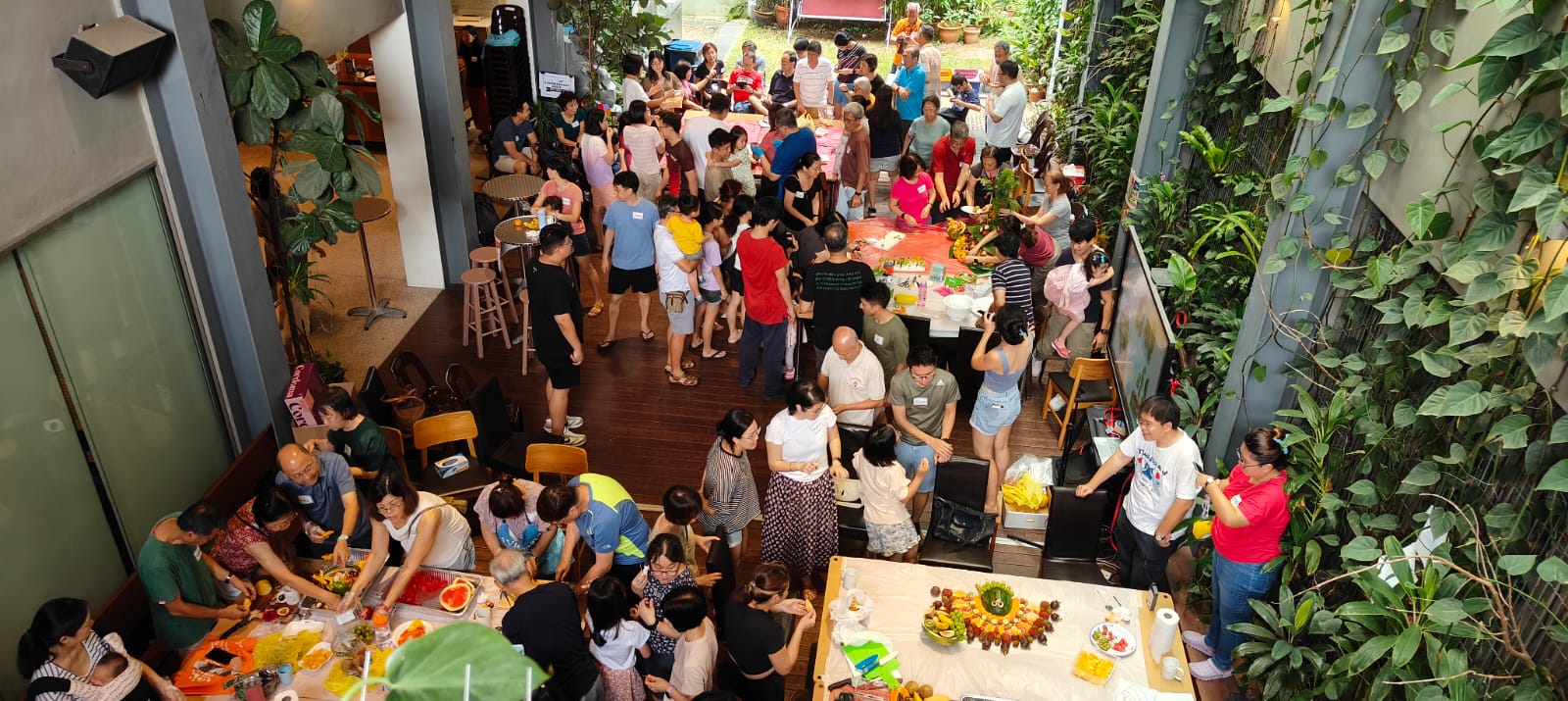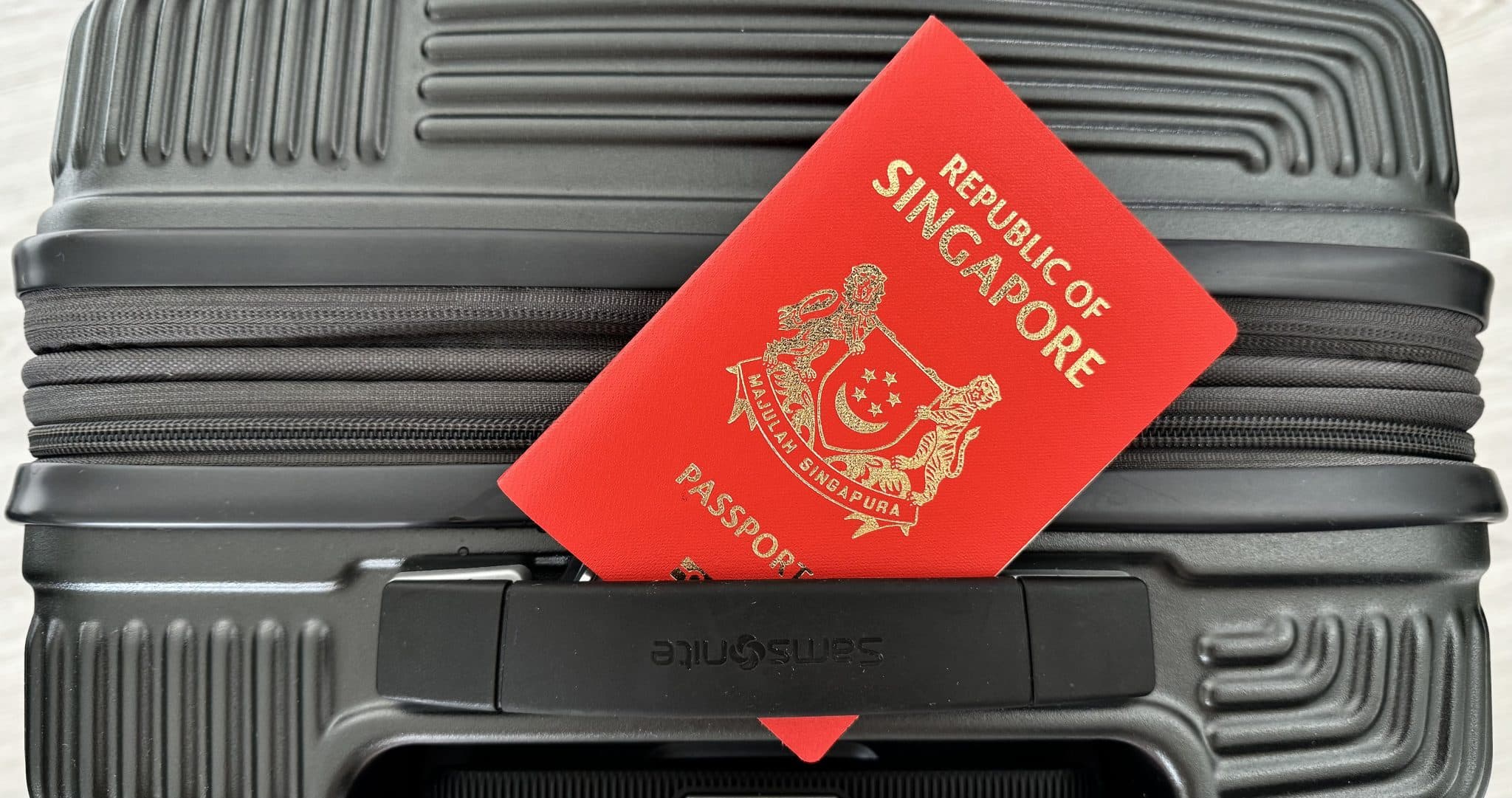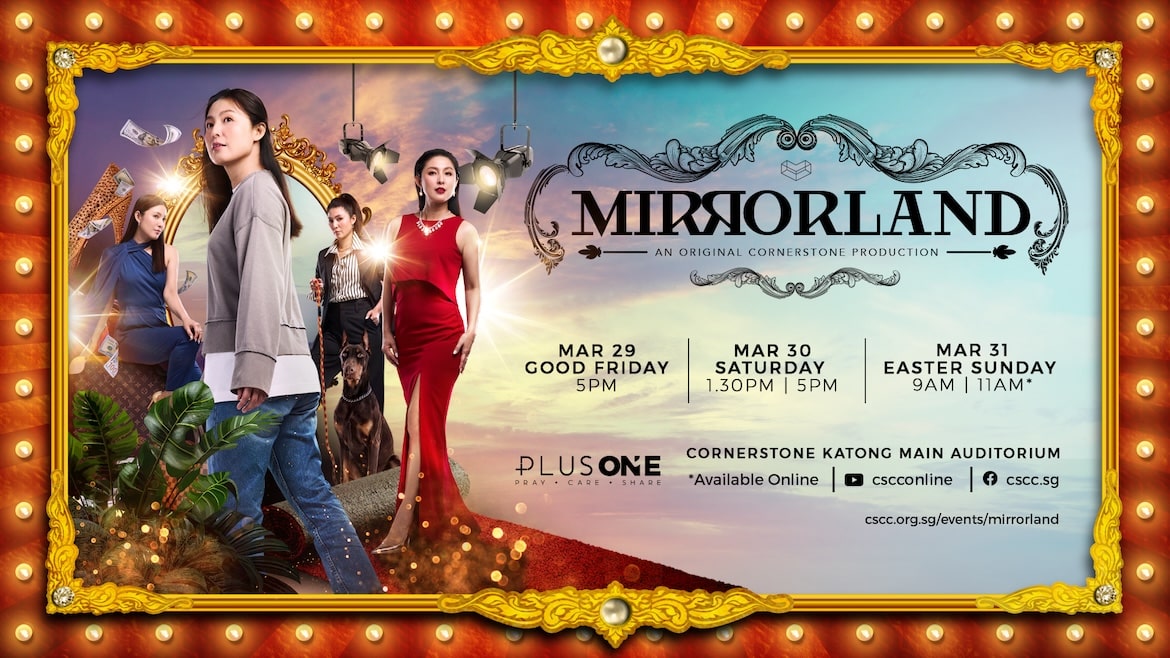Translating the Bible is not just about words: Dr Goh Wei Leong and Ps Melvyn Mak on new not-for-profit Wordly Collective
by Gracia Lee // November 17, 2020, 5:41 pm
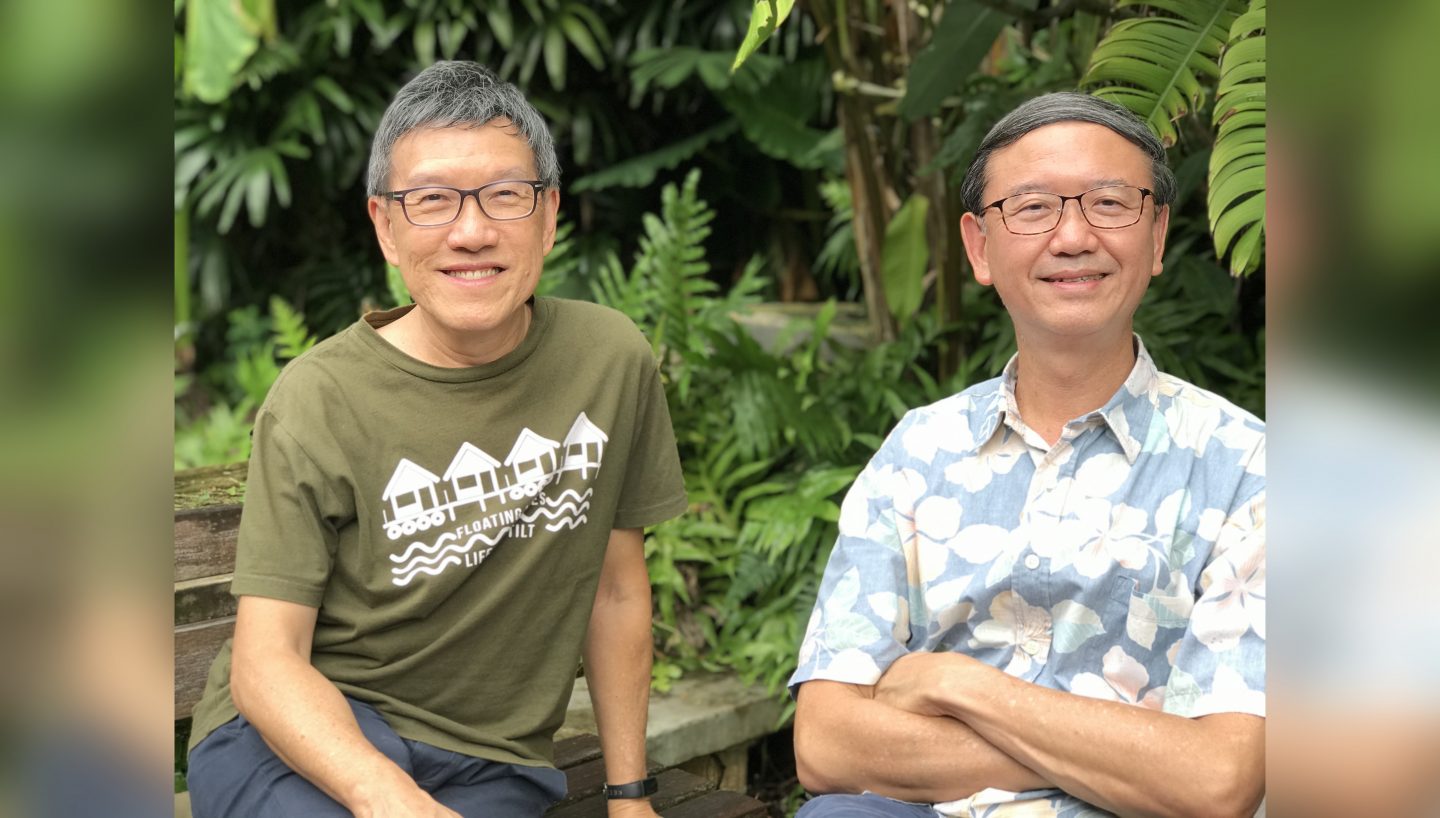
Wordly Collective's co-founder Dr Goh Wei Leong (right) and director Ps Melvyn Mak said this newly incorporated organisation seeks to level the playing field using translation. Photo courtesy of Dr Goh Wei Leong.
When Covid-19 swept through the foreign worker dormitories in Singapore, local organisations and authorities did their best to educate the workers on safe hygiene practices.
But because of the language barrier, it took about two to three weeks before the workers understood the importance of handwashing, recalled Dr Goh Wei Leong, co-founder of HealthServe, which serves the migrant worker community.
However, when two doctors who spoke Tamil and Bengali went around S11 Dormitory broadcasting the message, it was quickly understood, noted Dr Goh, who stepped down as HealthServe’s chairman in September.
Unequal playing field
Like these migrant workers, people who do not speak the main language of a country are often left at a disadvantage – not just in a health crisis but in other aspects of life too, said Dr Goh.
“If you don’t understand the language, you cannot access information.”
“If you don’t understand the language, you cannot access information,” he said, citing examples like job opportunities and government aid. “It’s a problem of justice; a basic justice issue.”
This is why he and Goh Hong Yi co-founded Wordly Collective, a not-for-profit organisation that seeks to use language and technology to empower minority language communities in Southeast Asia and South Asia.
Dr Goh said he had been toying with this idea for the past two years, but the language crisis which arose in the migrant worker dormitories during the pandemic really “accelerated the progress”, he said.
“Unless we’ve got the language, we cannot connect on a deeper, more meaningful way. We’ll just end up giving care packs. But we must move beyond that and be life-giving.”
Translating life
To do this, Wordly Collective, which was incorporated last year and is supported by donors, hopes to provide a translation service via an application called Translation Friends, where translators from around the world can be linked up virtually with those who need their service.
“A simple translation of a legal document is part of preaching the Gospel.”
This application can be used by organisations, foundations and churches to help them serve people from minority language communities better.
For example, before a migrant worker from Bangladesh signs an English contract with his agent in Singapore, he can be connected with an English-Bengali translator to have the contract translated into the language that he understands best. This puts him in a better position to make an informed decision.
“A simple translation of a legal document is part of preaching the Gospel,” said Dr Goh. “This (translated) legal document would have prevented this migrant worker from being exploited.”
What makes this service different from other online translation services like Google Translate is that it offers a human connection that is also tailored to each client’s specific needs – for example, if they prefer a colloquial translation rather than a formal one.
Translation also benefits those in the majority language group.
Apart from giving those in the minority language groups a leg up, translation also benefits those in the majority language group, said Dr Goh.
He cited the example of migrant worker Mukul, who received much media attention in Singapore after his poetry was translated into English and published in two books – Me Migrant and Braving Lives.
By translating his work into a language we can understand, we are “unlocking the richness of his poetry for ourselves and the world at large”, said Dr Goh, adding that there is much to unearth and learn from minority language communities.
The application is currently being developed by SIL International, a global Christian non-profit that shares Wordly’s vision to see people flourishing in community using the languages they value most.
Platform for connection
Nevertheless, Wordly Collective is not stopping at just translation. Instead, it has a larger vision to connect like-minded people who share the same goal of helping these communities, said Ps Melvyn Mak, director of Wordly Collective.
“The larger purpose is for the advancement of the Kingdom of God.”
Ps Mak is also the chairman of Transformational Business Network Asia (TBN Asia) and a lay pastor at Cornerstone Community Church.
For example, said Ps Mak, if separate organisations or churches in Malaysia and Indonesia use Translation Friends to help displaced Rohingya people, a persecuted ethnic minority from Myanmar, then Wordly Collective can link them up.
“If you can connect them, they are likely to help one another,” said Ps Mak. “Not just within a country itself, but within the diaspora. So it’s much more dynamic.”
This collaborative approach will help to uplift entire communities, he added. “The larger purpose is for the advancement of the Kingdom of God. Though we are a neutral platform, we drive it very much through the body of Christ.”
The holistic Gospel
Ultimately, the impetus of Wordly Collective is to give people the “whole Gospel”, which encompasses spiritual, physical, emotional and mental aspects, said Dr Goh.
“But where was the Church? Maybe we weren’t aware. But now that we are, we better live it out.”
“A holistic Gospel is not just giving you the Bible, but also clean water, education, access to phones so you have a bank account, access to credit, access to information.
“This is so that as a farmer, apart from having the word of God, you also have all the other things that are important in the flourishing of your life as a farmer.”
He added that the Bible often looks at the whole person, giving the example of the early Church described in Acts, which not only preached the Word but also enlisted leaders to serve the poor, the widows and wait on tables.
Said Dr Goh: “If we had been aware of this (holistic Gospel) 20 years ago, our migrant worker issue wouldn’t be so big. Roll back 20 years, if we had understood the Kingdom of God, Christians would have (helped to do) legal documents that were fair and not one-sided.
“But where was the Church? Maybe we weren’t aware. But now that we are, we better live it out.”
Interested in how languages can lead to economic empowerment and flourishing?
To raise awareness among the body of Christ, Wordly Collective will be holding a series of free, online webinars over the next few months.
Ps Mak hopes that these webinars will bring about a deeper active involvement in this space of language, translation and missions, as well as raise awareness of minority language communities in our society so that more are spurred to look out for those at the margins.
Find out more below:
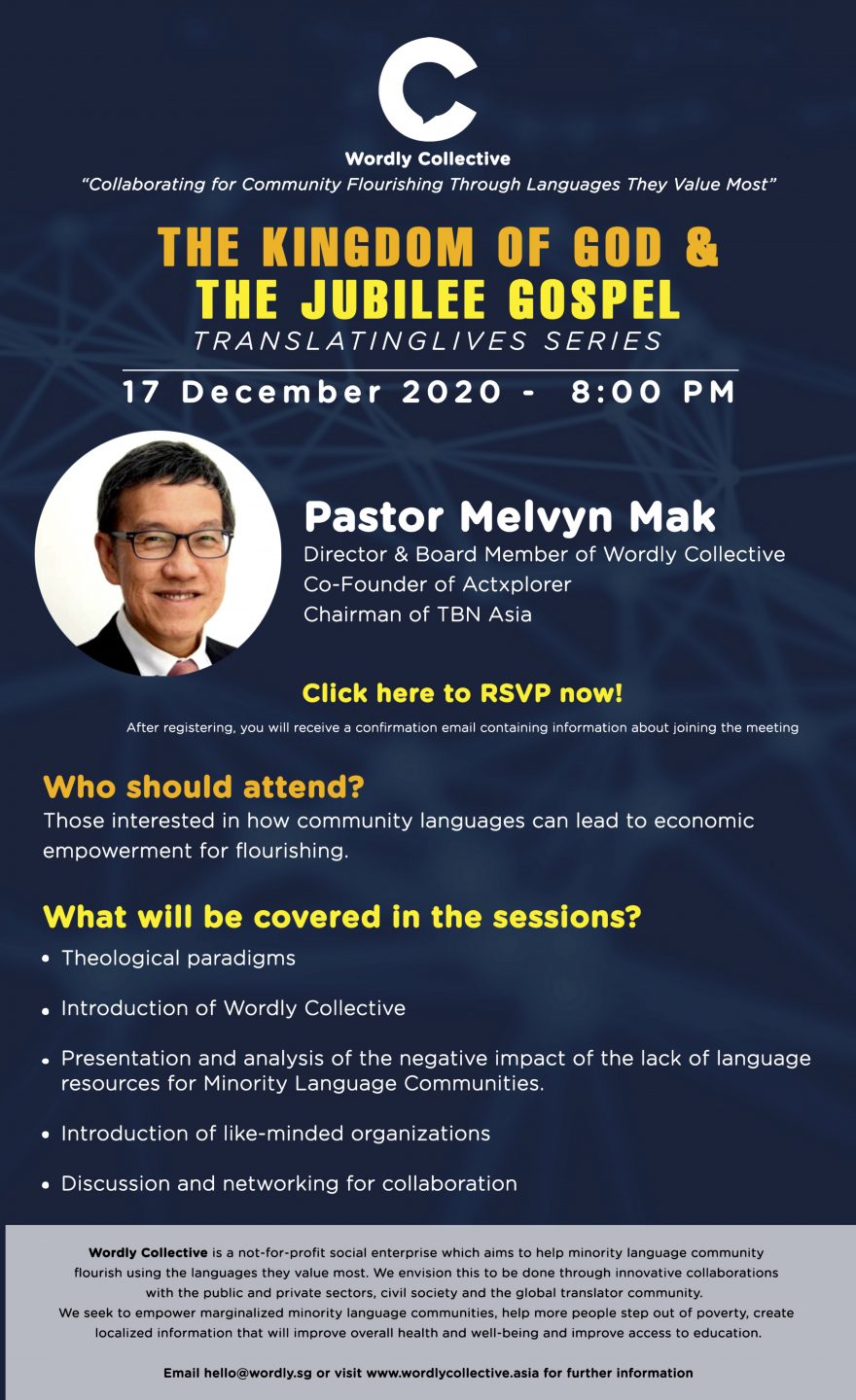
To register, click here.
FOR MORE STORIES ON SOCIAL JUSTICE:
We are an independent, non-profit organisation that relies on the generosity of our readers, such as yourself, to continue serving the kingdom. Every dollar donated goes directly back into our editorial coverage.
Would you consider partnering with us in our kingdom work by supporting us financially, either as a one-off donation, or a recurring pledge?
Support Salt&Light